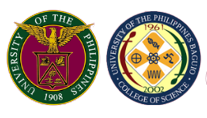The College Lecture Series is another venue for experts in the field of Science and Mathematics to share the latest trends and scientific breakthroughs to faculty and students. It features College faculty as well as experts from other academic institutions, here and abroad. The celebration of the 2021 National Science and Technology in November last year was spearheaded by the CS Lecture Series Committee
(The following is reprinted from Ti Similla, November 2021 issue: Science and Technology: Responding to the Challenges and Times by Prof. Windol Charls Santos)
In celebration of the 2021 National Science and Technology Week (NSTW), the CS Lecture Series Committee organized lectures in partnership with the Department of Biology, CS- USC, UPB BioSoc, and Physics Sphere. The lectures were held through Zoom and streamed in social media platforms whenever possible. The theme for the NSTW was Agham at Teknolohiya: Tugon sa Hamon at ng Panahon (Science and Technology: Responding to the Challenges and Times). Participants were treated to diverse selections of talks, encompassing areas such as culture, society, gender, complex systems, and conservation.
- Pre-NSTW Lectures (9 and16 November 2021): Two Mondays preceding the event tackled food security and climate change. For food security, Dr. Lumanayo (UP Visayas) shared his insights on aquaculture. Dr. Nogoy (Central Luzon State University) on the other hand, looked at the importance of genetically modified organisms (GMOs) while on climate change, Ms. Maxwell (Leibniz Centre for Tropical Marine Research, Bremen, Germany) provided how past sea levels have implications for the Philippines in an ever-warming world.
- NSTW Lectures Women in Science (22 November 2021): The lecture series started with UP Baguio’s Professor Emeritus, Dr. Elsie Jimenez who focused on researching well, giving instructions on how to publish research, and explaining how impact factor determines what journal to choose for publication. She was followed by Dr. Macam (National Sun Yat-Sen University, Taiwan) who extended the understanding of how magnetism and spin-orbit coupling arise in a system where topology, correlation, and geometry matter.
- Viruses in Our Time (23 November 2021): The morning session started with Dr. Padua-Lozano (UP Manila Phil-DIAMOND) on how the body responds to HIV and COVID-19 infections through T-Cells. She was followed by Dr. Tubera-Panes (Baguio City Epidemiology and Surveillance unit) who shared how disease surveillance can explain how a complex system can give rise to wicked problems and how the pandemic has taught people to work on a more sustainable healthcare system.
- Culture and Science (23 November 2021): Dr. Eusebio (UP Diliman) revealed how food is not just for biological sustenance, but is mediated through foodways. Dr. Mendoza (UP Diliman) finished the day by presenting the relationship of math and language, using Dr. Nemenzo’s TedX talk and insights from STS students.
- Science and the Society (25 November): Dr. Vallejo (UP Diliman) began with a timely discussion of science and politics which showed us that scientists cannot be apolitical. Next, Ms. Panela (Clean Air Asia) laid out science communication in the Philippines. The afternoon session featured Dr. Treyes (UP NISMED) who disseminated how the Science-Technology-Society (STS) approach is used in the K-12 science curriculum, and Dr. Minimo (UP National Institute of Geological Sciences) who showed how science and technology play a part in disaster resilience.
- Cracking the Physics Code (26 November) by Physics Sphere: Ms. Verzola (National Sun Yat-sen University, Taiwan) shared her knowledge on how high- performance computing can simulate materials. She was followed by Mr. Carrudo (GfK) who looked at data science from a physics perspective. Finally, Mr. Angeles (UP Diliman) demonstrated how Raman spectroscopy can “fingerprint” nanoparticles.
- Department of Biology (22-27 November): Mr. Arthien Pelingen (Ateneo Biodiversity Research Laboratory) presented the biodiversity of Philippine aquatic insects while Dr. Reginaldo studied the biodiversity of rodents in La Trinidad, Benguet. Dr. Balangcod and Dr. Hipol both gave virtual tours of their labs which showed various apparatuses in their research. Dr. Santos (DA-NFDRI) illustrated how a species is declared endangered.
(The video recordings of selected NSTW lectures are uploaded in the College of Science official Facebook page.)

